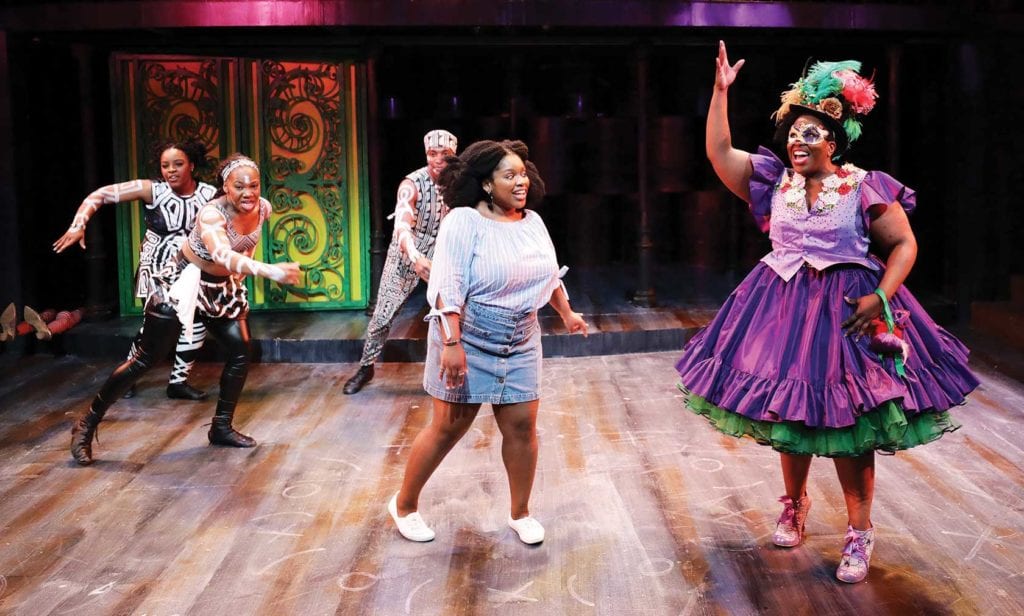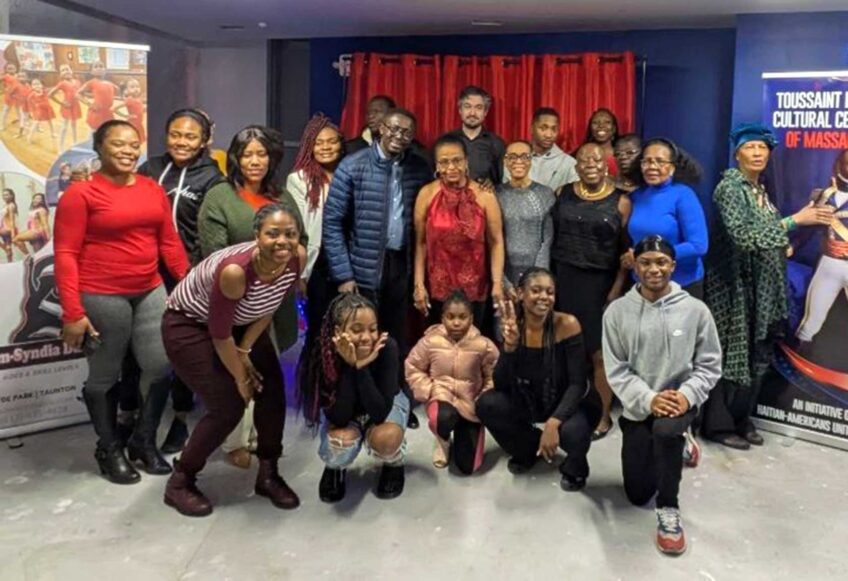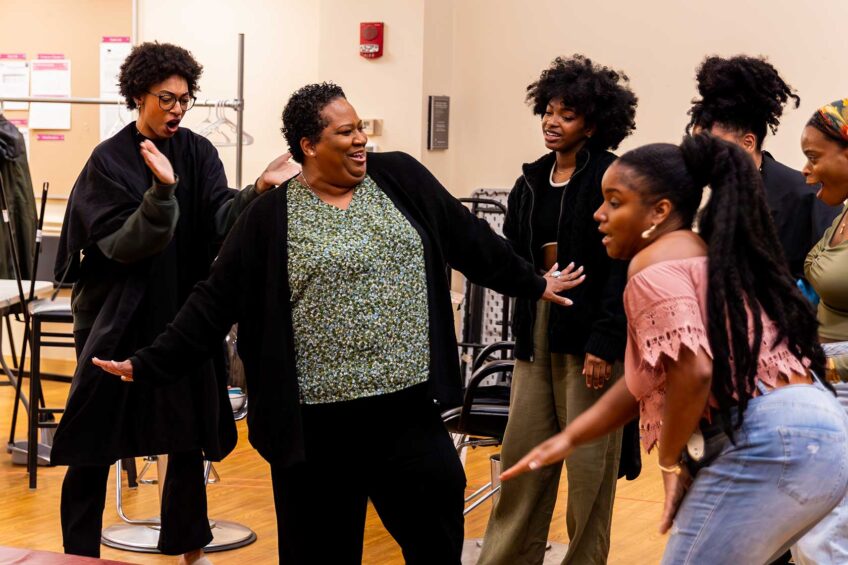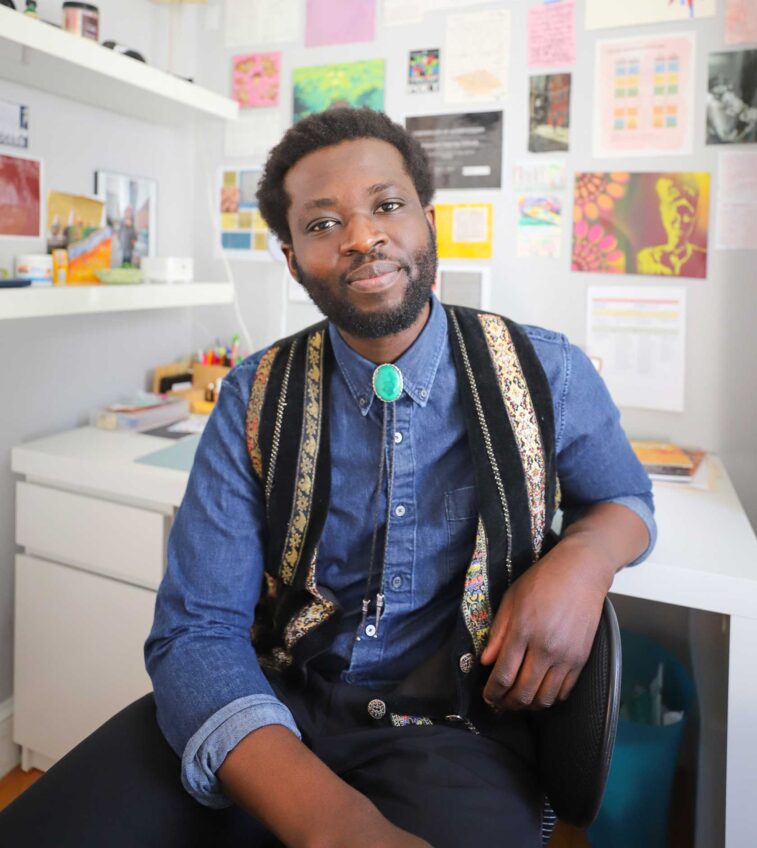So you want to see the wizard
Lyric Stage’s ‘The Wiz’ as important as ever

Lyric Stage Company ends its season with a bang, presenting “The Wiz” through June 24. The energetic performance, featuring an all-black cast, retells L. Frank Baum’s “The Wonderful Wizard of Oz” through the lens of modern African American culture.

Lyric Stage’s production of ‘The Wiz’ plays at its Copley Square venue. photos: courtesy Lyric Stage
Musical Director Allyssa Jones tweaked the music subtly to update it even further since the show’s 1975 debut. The original music was designed to emphasize historically African American genres like jazz, soul and gospel. Jones says she stripped away a lot of the extra instruments to reach the core rhythms. From there, she added additional allusions to New Orleans’ voodoo culture and a hip-hop club scene.
“This was the musical that made me want to be a performer,” says Jones, recounting how she and her family watched the TV adaptation together. “I want the audience to understand all the layers that happen in black and brown music and how those elements have continuously informed their everyday lives.”
Black American interpretation
This is black theater done right. Not only is the cast of actors all people of color, the supporting production team is almost exclusively so as well. Jones, director Dawn Simmons, choreographer Jean Appolon and others are well-established African American talents in the Boston theater scene. Salome Smith, who plays Dorothy, says, “Having a cast that looks just like you makes you feel at home. And that’s at the heart of this show — home.”
Though the storyline remains quite close to Baum’s original 1900s children’s tale, the plot points take on a different tone in the context of black America. The Wicked Witch of the West’s enslaved population the Winkies, the central theme of believing in your own potential and even the baseline opportunity for black actors to play lead roles all reference a history of fighting against oppression. The script and music incorporate slang and styles of black culture to pull the piece together.

Lyric Stage’s production of ‘The Wiz’ plays at its Copley Square venue. photos: courtesy Lyric Stage
The consensus among critics after the Broadway debut of “The Wiz” was that though the show was whimsical rather than avant-garde, it rendered a fervent argument for representations of black talent and culture. That argument continues to be essential in Boston, where black artists are still fighting for their due.
Representation
Jones and Smith agree that the positive representation of African Americans is a key part of the performance. “I believe the show is extremely important right now,” says Jones. “I think it’s important to offer this alternative understanding of who we are as black and brown people.”







